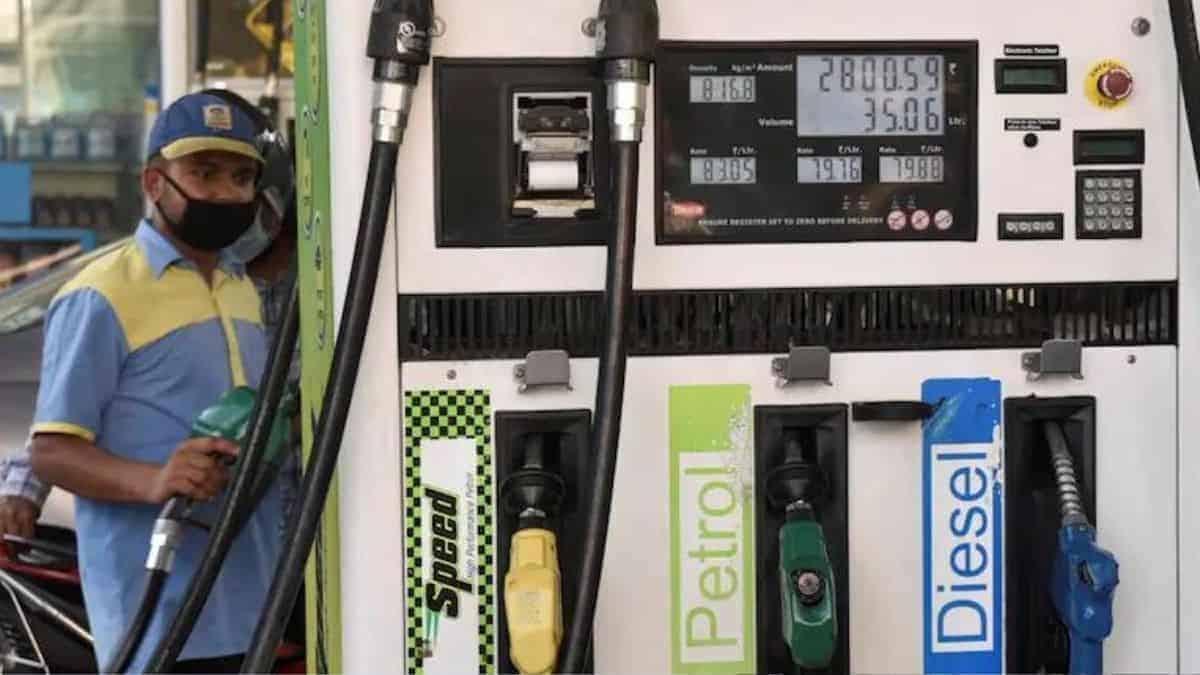Price of Diesel hiked by ₹25 and New cost is ₹115; find out more

According to sources, the price of diesel has been hiked by Rs 25 per litre for bulk consumers as a result of the over 40% increase in oil prices on the worldwide market. It went on to say that retail prices at gas stations had not been changed.
Petrol pump sales have increased by a fifth this month as large groups of people, such as bus fleet operators and shopping malls, queued up at gas stations to buy fuel rather than purchasing directly from oil firms, causing retailers to lose money.
Private retailers like Nayara Energy, Jio-bp, and Shell have been affected the hardest, refusing to cut back on volume despite an increase in sales. But, according to three sources with firsthand knowledge of the situation, closing pumps is now a more practical option than continuing to sell additional petroleum at frozen rates for a record 136 days.
Reliance Industries closed all of its 1,432 petrol pumps across the country in 2008 after-sales plummeted to practically zero because it couldn’t compete with the subsidised prices supplied by the public sector.
According to them, a similar scenario could play out again if retailers’ losses grow due to bulk users being diverted to gas stations.
In Mumbai, the price of diesel for bulk consumers has been increased to Rs 122.05 per litre. This contrasts with the price of the same fuel at petrol outlets, which is Rs 94.14 per litre.
Diesel costs Rs 86.67 a litre at the fuel pump in Delhi, while it costs around Rs 115 for bulk or industrial customers.
Despite a rise in global oil and fuel costs, PSU oil companies have not hiked retail prices of petrol and diesel since November 4, 2021, a decision regarded as helping the Bharatiya Janata Party (BJP) in important state assembly elections.
After the votes were counted on March 10, prices were intended to start aligning with costs, but the commencement of the second half of the Budget Session meant that the price hikes didn’t materialise.
Private fuel retailers such as Nayara Energy, Jio-bp, and Shell were forced to maintain their petrol and diesel prices because they would lose customers if their rates were higher than those of Indian Oil Corporation (IOC), Bharat Petroleum Corporation Ltd (BPCL), and Hindustan Petroleum Corporation Ltd. (HPCL).
However, according to sources, PSU retailers have raised rates for bulk customers such as state bus fleets, malls, and airports that utilise diesel to generate backup electricity.
Although there are few large-scale or industrial users of gasoline, diesel is frequently employed in the industry.
According to them, the large price differential between the bulk user rate and the petrol pump pricing of roughly Rs 25 per litre has led bulk customers to refuel at petrol pumps rather than hire tankers directly from oil companies.
Oil corporations’ losses have widened as a result of this, which were already flowing from selling gasoline and diesel at below-cost prices.
While Nayara Energy did not respond to an email seeking comment, Jio-bp, Reliance’s fuel retail joint venture with bp, said “there is a massive surge of demand at fuel stations (retail outlets) due to an increased delta of Rs 25% between the retail and industrial price of diesel, leading to heavy diversion of bulk diesel (direct customers) to retail outlets.”
“There is also a significant amount of fuel being lifted by dealers and B2B and B2C customers who have made advance orders to top up their tanks and capacity in expectation of an overdue price increase. In March 2022, there were record sales as a result of this sudden rise, putting pressure on the entire logistics and supply system.” Jio-bp
This is exacerbated by a lack of Tank Trucks and rakes due to a sudden rise in demand, as well as limited availability of TT crew across the industry during the holiday season, according to the spokeswoman.
Private retailers have not reported sales, while PSU retailers sold 3.53 million tonnes of fuel from March 1 to 15, up 32.8 per cent from the previous month. Sales were up 23.7 per cent year over year and 17.3 per cent from March 1 to March 15, 2019.
Last week, Oil Minister Hardeep Singh Puri said that fuel sales had climbed by 20% as a result of stockpiling in anticipation of a price hike, but sources claim that sales also surged as a result of bulk customers queuing at petrol pumps.
Despite the hurdles, a Jio-bp representative stated that Reliance is entirely dedicated to meeting the demands of its retail consumers.
Jio-bp has 1,454 petrol pumps across the country, while Nayara has 6,510. PSUs control 90 per cent of the country’s 81,699 petrol pumps.
In 2008, government subsidies were granted to PSU retailers for selling gasoline and diesel at below-cost prices, while private retailers were excluded from the programme. PSU merchants have been encouraged to balance their losses from inventory increases with the increased refining margins they are now getting. Private merchants, on the other hand, do not have refineries to compensate for retail losses.


